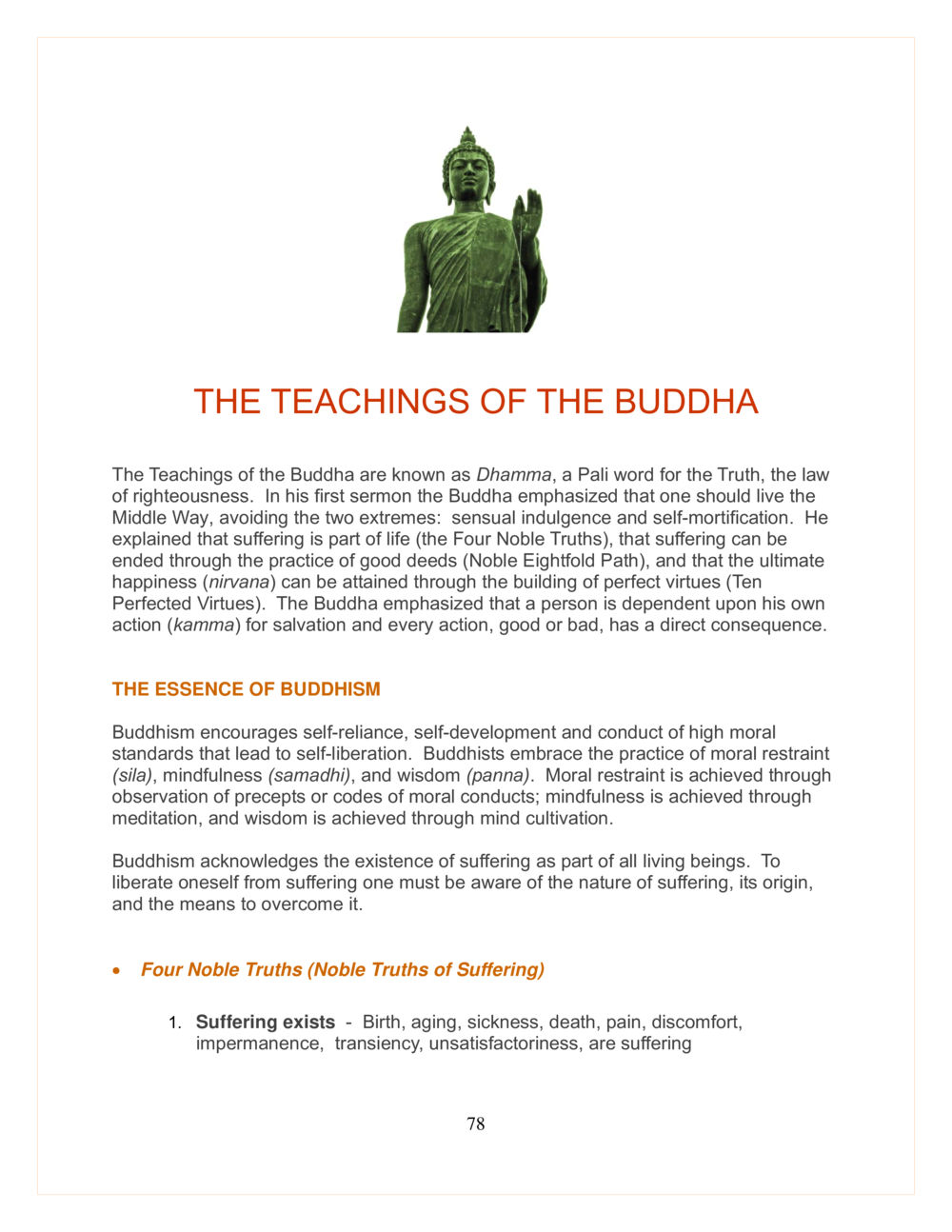The Teachings of the Buddha : หน้า 78/115
DMC Translor’s handbook : หน้า 78/115 Explore the core principles of Buddhism, including the Four Noble Truths and Noble Eightfold Path, leading to self-liberation and nirvana.
2 ครั้ง

สรุปเนื้อหา
The Teachings of the Buddha, known as Dhamma, emphasize the Middle Way, avoiding extremes of indulgence and self-mortification. Central to Buddha's teachings are the Four Noble Truths, which acknowledge suffering as a vital part of existence, and the Noble Eightfold Path as a guide toward good deeds that can alleviate this suffering. Through the practice of moral restraint, mindfulness, and wisdom, individuals can achieve self-reliance and ultimately attain nirvana. The essence of Buddhism revolves around understanding the nature of suffering and taking action toward liberation without relying on external salvation. All actions, whether good or bad, have significant consequences on one's journey toward happiness and enlightenment. For more insights, visit dmc.tv.
หัวข้อประเด็น
-Core principles of Buddhism
-Understanding suffering
-Four Noble Truths
-Noble Eightfold Path
-Self-liberation and moral conduct



















































































































